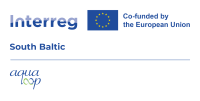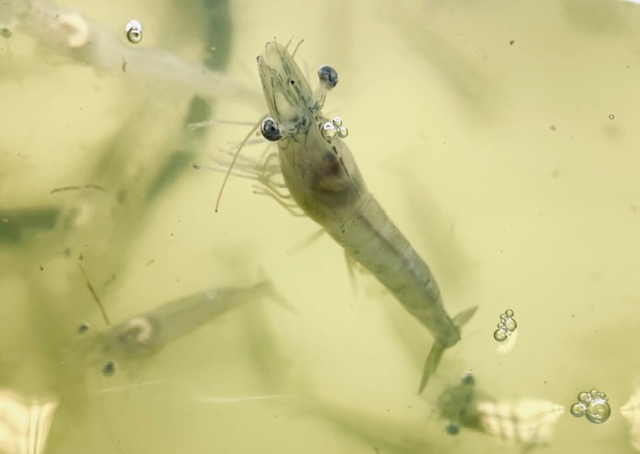Our first trial study in AquaLoop Pilot 1 TARAS – Testing Algae Applications in Recirculating Aquaculture Systems (RAS) to improve aquaculture circularity potential in the South Baltic (SB) region – was an exciting hands-on opportunity for University of Gdańsk students to contribute to real-world aquaculture research
The initiative of student involvement ran from October 2024 until the end of the shrimp cultivation cycle (April 2025). During that time, three Oceanography undergraduate students – including two third-year students working on their bachelor’s theses and one second-year student completing a professional internship – as well as one Oceanography graduate student, were involved in research and day-to-day care of the pilot system.
Students were responsible for the day-to-day care of the RAS (Recirculating Aquaculture System), including: monitoring system performance, cleaning filters and the skimmer, measuring and documenting water quality parameters, adjusting water chemistry, observing shrimp health and condition, refilling automated feeders, as well as periodic cleaning of tanks and the central system.
Additionally, two bachelor’s students took on research projects focused on the impact of dietary supplementation on white shrimp (Penaeus vannamei). Their work included literature review, experimental planning, and preparation of enriched feeds, which led to two bachelor’s thesis projects: “The Effect of Diet Enrichment with Yeast and Probiotics on the Growth of White Shrimp (Penaeus vannamei) in the 2024/25 Cultivation Cycle”, and “The Effect of Feed Supplementation with Yeast and Probiotics on the Feeding Behavior of White Shrimp (Penaeus vannamei)”
Our graduate student also supported research within the pilot by assisting with: experimental setup and execution; measurements of feed consumption rate, respiration rate, excretion of nitrogen compounds, and food assimilation efficiency; biological sampling (e.g., hemolymph collection, wet mass and length measurements); and preserving specimens for further laboratory analysis.
This collaboration between students and researchers not only provided valuable data for our project but also gave students a unique opportunity to engage in applied marine science. Their work continues to inform our understanding of sustainable shrimp aquaculture and the potential of functional feed additives.
Thank you for cooperation!
Stay tuned for results and insights from their research!

